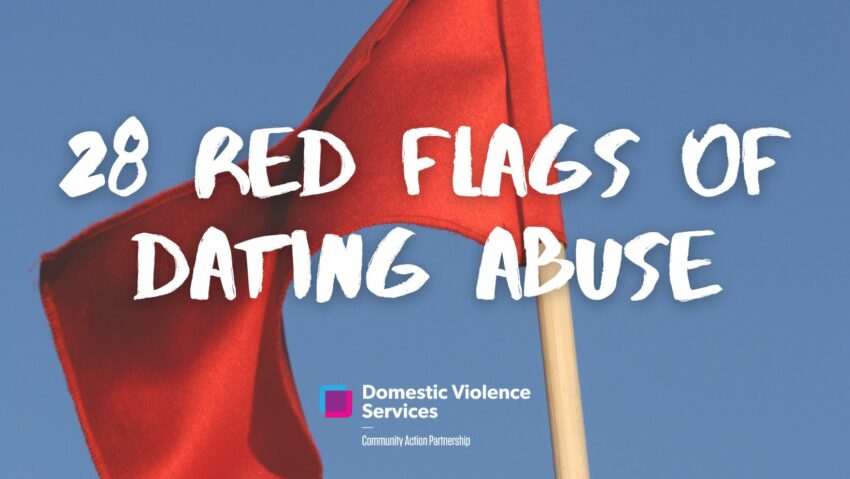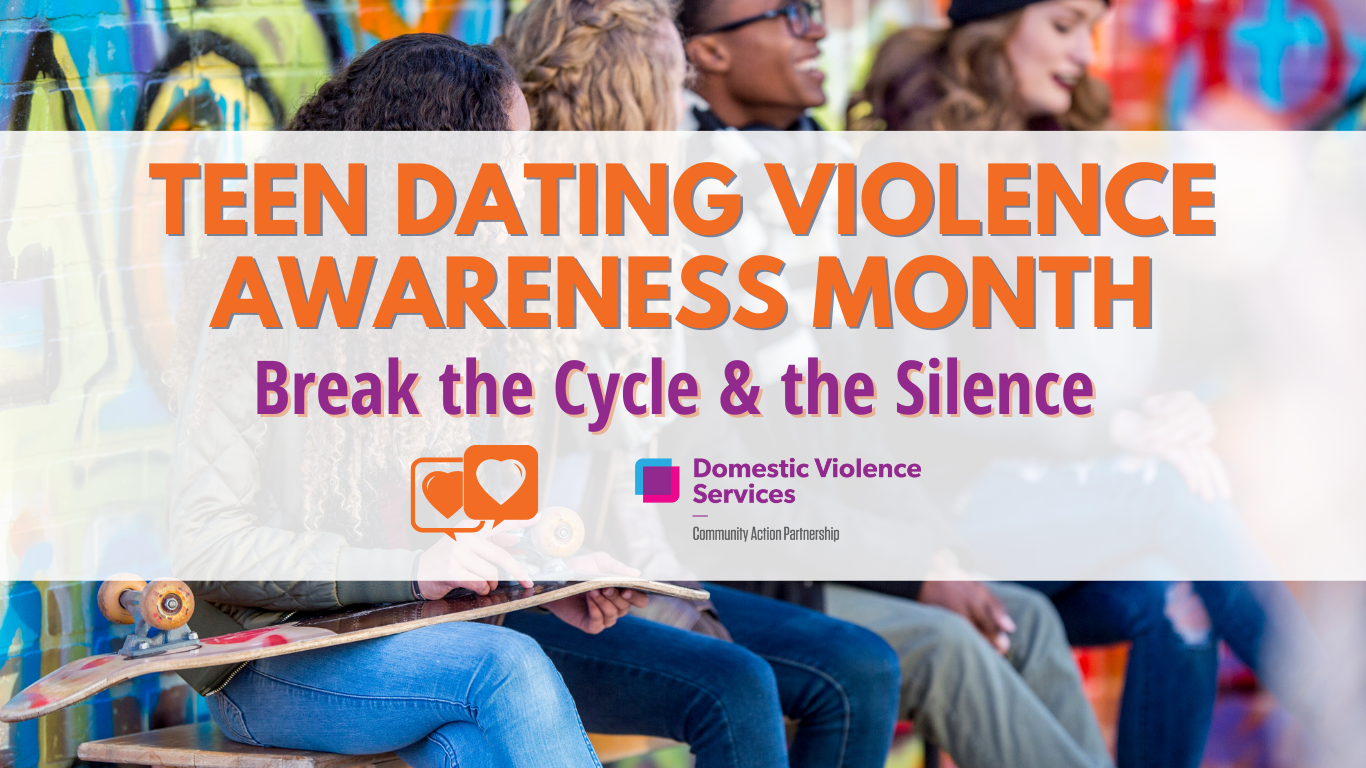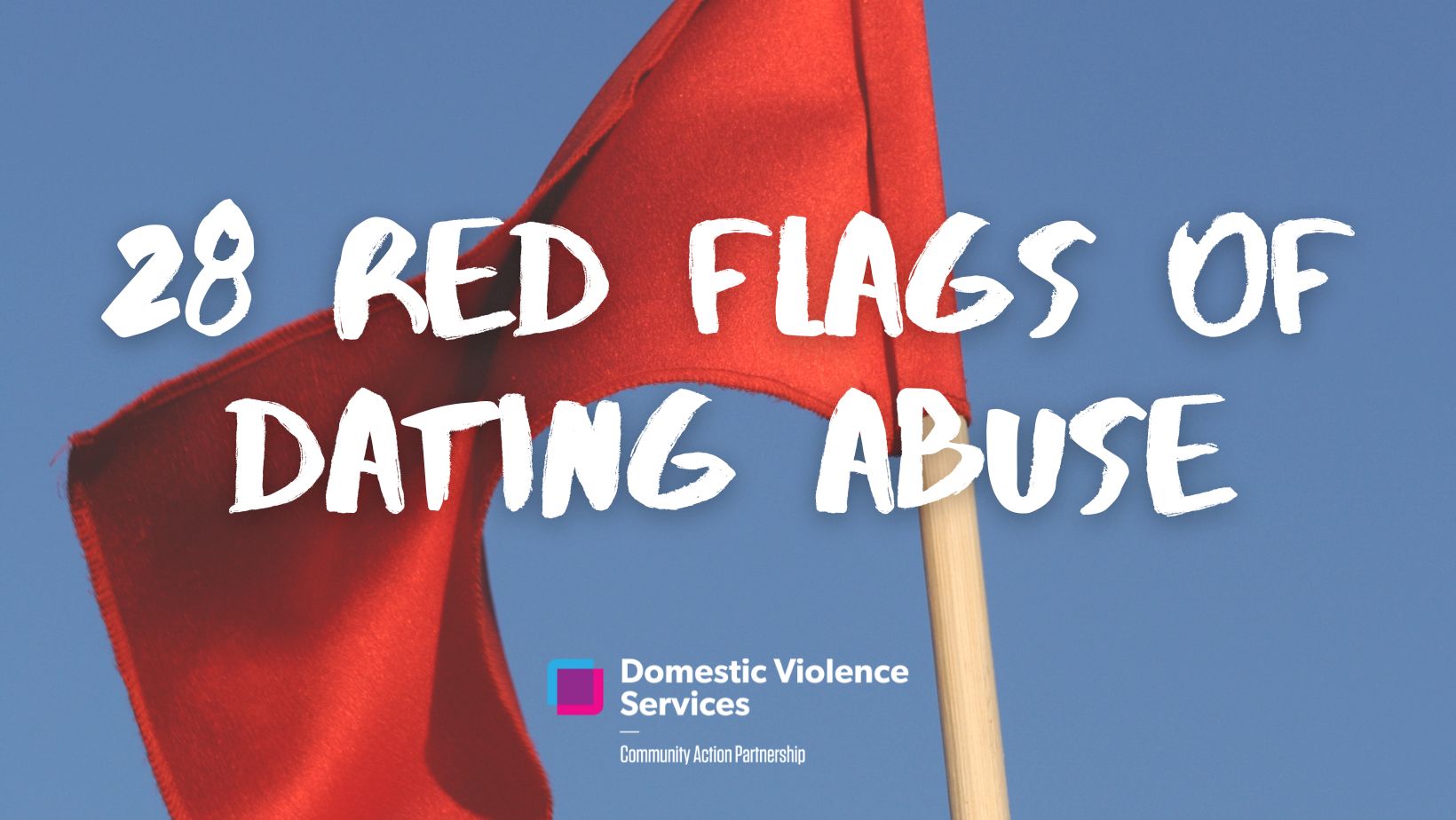28 Days of Red Flags – Domestic Violence Services (DVS) – Community Action Partnership


Dating violence is more common than you may think, especially among teens and young adults: 1 in 3 U.S. teens will experience physical, sexual, or emotional abuse from a dating partner. Nearly half (43%) of U.S. college and university women report experiencing violent or abusive dating behaviors.
In response, in 2010, the U.S. Congress declared that February is Teen Dating Violence Awareness Month (TDVAM). Each February, young adults, and their loved ones, as well as advocacy organizations across the nation, join together to raise awareness about dating violence and promote educational initiatives to prevent it…before it begins.
- 1 in 10 high school students has experienced physical violence from a dating partner in the past year.
- 1 in 4 dating teens is abused or harassed online or through texts by their partners.
- Only 4% experience digital abuse and harassment alone. So social media, texts, and e-mails don’t seem to invite new abuse, they just provide abusive partners with a new tool.
- 1 in 3 college women say they have been in an abusive dating relationship.
- 1 in 5 college women has been verbally abused by a dating partner.
We also hear from parents, caregivers and friends that they don’t know how to recognize the signs of abuse and they don’t know how to help when it happens:
- 81% of parents don’t acknowledge that teen dating abuse is a problem.
- 58% of college students say they don’t know what to do to help someone who is a victim of dating abuse.
Domestic Violence Services (DVS), a program of the Community Action Partnership, is ready to support youth, young adults, parents, and caregivers to learn to recognize the “Red Flags” of dating abuse. One way to connect with the community is by using social media to educate the community and start conversations about healthy dating and what to do when if abuse happens. For the past 28 days, DVS shared red flags and ways to recognize and take action.
You are not alone. If you are experiencing abuse and need help, contact DVS’s 24-hour hotline by calling 717-299-1249 or text SAFE to 61222.

What are ‘red flags’ in a relationship? How can you identify them? And most importantly, what should you do if your relationship has reached an unhealthy state? It’s not always easy to tell at the beginning of a relationship if it will become abusive.
In fact, many abusers may seem absolutely perfect on the surface — as if they are the dream partner — in the early stages of a relationship. Possessive and controlling behaviors don’t always appear overnight, but rather emerge and intensify as the relationship grows.
If you’re beginning to feel as if your partner or a loved one’s partner is becoming abusive, there are a few behaviors that you can look out for.
- Threatening to share pictures or spread lies if you break up with them
- Jealousy: extreme and unwarranted
- Stalking: using social media to either keep tabs or stalk you
- Driving recklessly
- Throwing or punching things
- Restraining you from getting away or squeezing your arm
- Belittling: often masked as humor to make others laugh
- Isolation: telling you who you can and cannot be friends with
- Gaslighting: causing you to doubt your sanity through the use of manipulation
- Lying
- Giving you gifts than making you feel guilty or obligated to them
- Sexual coercion: pressuring or forcing you to have sexual intercourse
- Sending threatening or harassing texts
- Threatening to commit suicide if you leave them
- Demanding to know all your passwords and read your texts
- Threatening to out you if you break up with them
- Threatens to or stops using birth control
- Having to ask permission to see family or friends
- Controlling what you wear and how you wear your hair
- Ghosting in communication
- Blaming you for their bad behavior
- Saying they don’t like your family or friends
- Demanding you have to quit your job, sport, or club because it takes too much of your time
- Possessiveness
- Get violent or angry when they drink and later blame their actions on alcohol
- You feel like you are walking on eggshells all the time
- When you let your partner know that they hurt you and they gaslight you
- Manipulation
Abuse is never the fault of the victim and it can be hard for many reasons, including safety, to end the relationship. If you experience these “red flags,” you can confide in a friend or reach out for support from a domestic violence advocate. If you believe a friend or relative is being abused, offer your nonjudgmental support and help.
DVS is a catalyst to eliminate domestic violence in Lancaster County through direct service, advocacy, and social change. DVS offers a 24/7 hotline and text line, emergency shelter, counseling, children’s programming, legal advocacy and representation, and transitional housing. All services are free of charge and strictly confidential. DVS hosts professional training and community education and prevention sessions for schools, businesses, and community and faith-based organizations. For more information, visit caplanc.org/DVS.


